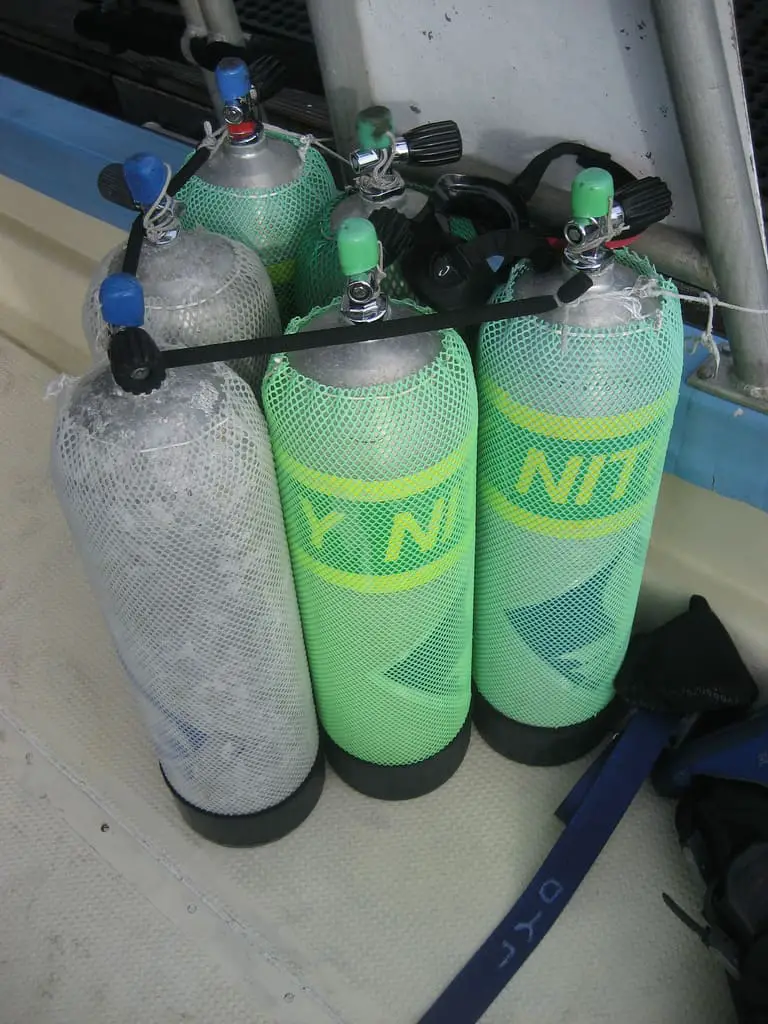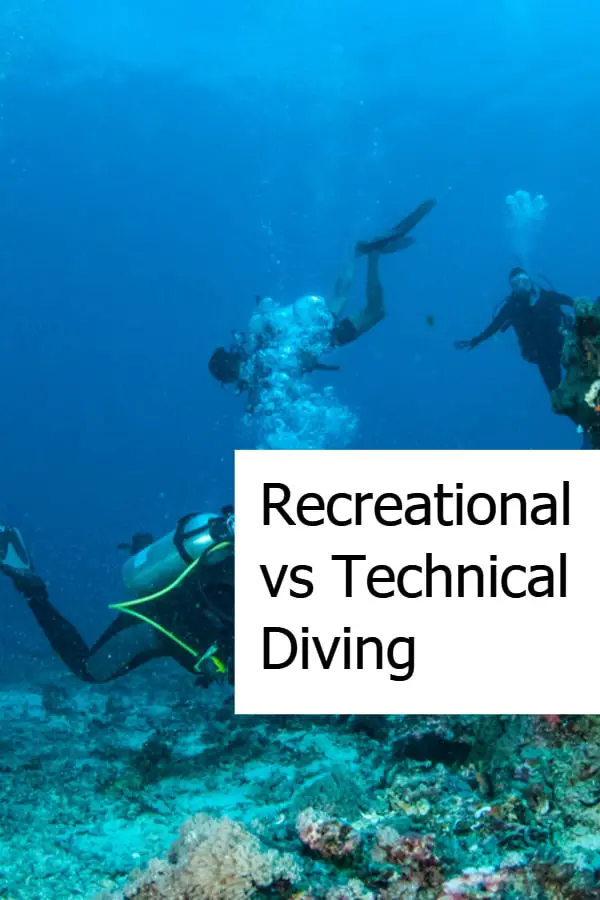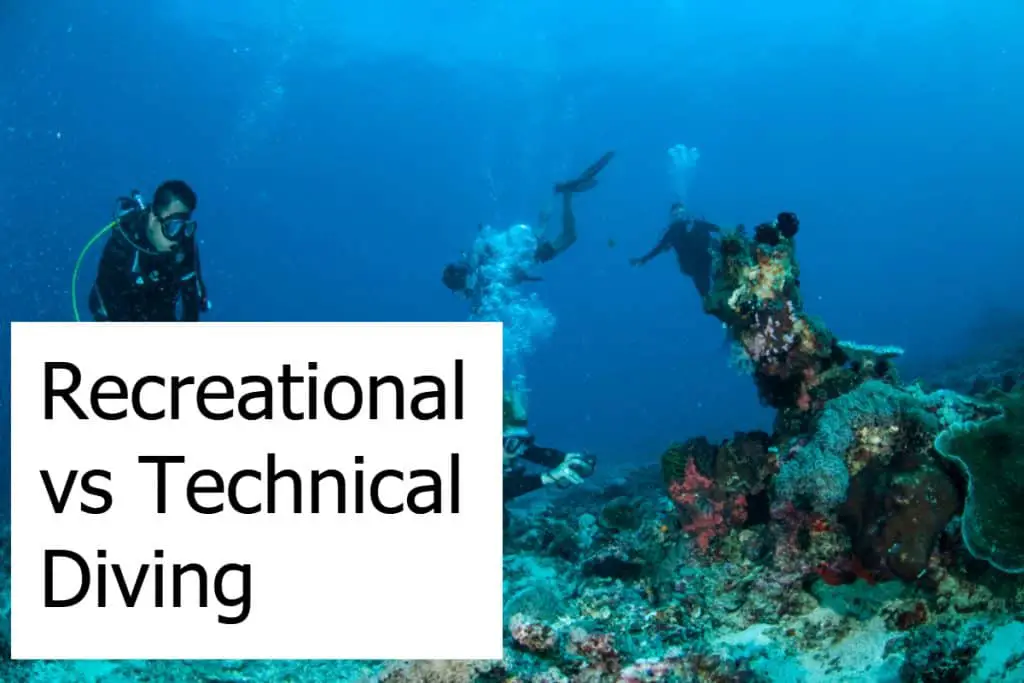Recreational vs Technical Diving
You always hear the terms recreational and technical diving. But what do they mean? What do they stand for? Are they that clearly to differentiate?
What are the Differences Between Technical and Recreational Scuba Diving?
Most people will think that diving is just diving and probably can understand the difference between a sport diver and a commercial diver. Yet, there’s more to it. The majority of divers today are recreational divers but more and more are looking at technical diving to expand their dive horizon.
Let’s have a look at the definitions for both recreational and technical diving.
Recreational Diving
Recreational diving is also known as sport diving. The general definition is that it allows limiting the diving to be able to directly ascent to the surface at any time during a dive.
A direct ascent, in this case, means that you come up from a dive at a constant and set speed while not having to make any stops. This does increase the safety of the experience tremendously as in case of an emergency there’s always a quick escape.
Technical Diving
Technical diving in comparison is usually referred to as a dive where you have to make decompression stops during your ascent – Why do Divers have to Decompress? This is done to allow your body to prevent nitrogen bubbles from building up in your body and causing serious health issues.
Another definition is that a technical dive can involve diving in obstructing spaces like caves or wrecks. In this case, the ability to abort a dive and ascent from underwater is not that simple as you are within a structure that prevents you from coming straight up. This also means that you need to do a lot more planning for the dive itself as well as for contingencies in that case.
Lastly, technical diving usually also involves the use of different gas mixes. In the past, any use of a nitrox mix defined a dive as a technical dive. With modern dive computers, it became and constantly becomes easier to dive with different gas mixes.

This has pushed diving with nitrox more and more into the recreational dive area. We would consider diving with multiple dive mixes a technical dive while diving with one dive mix (air and/or nitrox) as a recreational dive. In any case, before you do any nitrox diving you want to be certified to do so.
In any case, technical diving brings more risks with it. You will need to have experience diving in order to instinctively make the right decisions as you will have less time to react in case of emergencies.
What makes them different?
Recreational diving is easier and safer. That’s why it lends itself to the sport diver that just starts out with the activity or to the diver that dives once in a while. It keeps you safe and you always have a quick escape to the surface if needed.
Technical diving is more involved and requires more planning and experience. Using different gas mixes for such dives also usually results in the need for additional equipment.
These can be dive computers that can handle multiple gases as well as BC’s that can take more than one tank. You will also have to consider that technical dives either go deeper or last longer and as such you have to think about staying warm. You might need a drysuit for those cases to provide you with the ability to stay warm.
The improvements in dive gear brought some aspects of technical diving into reach for recreational divers. Many dive computers, even entry-level ones, have the capability today to handle gas mixes. This definitely has brought nitrox diving into the recreational realm instead of keeping them plainly in the technical area.
When diving with a buddy and you both use different dive computers then you will run into differing information coming from your dive computers. One might tell you that you’re getting to the point that you have to use a decompression stop while the other will tell you that you’re safe to come up with no stop. This is depending on the different algorithms used and can be confusing. You usually want to stay on the safe side and be more conservative.
Conclusion
The line between recreational and technical diving is blurring with the availability of modern gear. This brought down prices for gear and in turn, has allowed recreational divers to venture into the technical dive realm without being aware that they did.
Nitrox diving becomes more widespread and one would not exclusively consider it part of technical diving. A better definition today might be the use of multiple gas mixes during a single dive that separates the recreational from the technical dive. However, diving with nitrox always requires that you get a Nitrox scuba diving certification for it!


